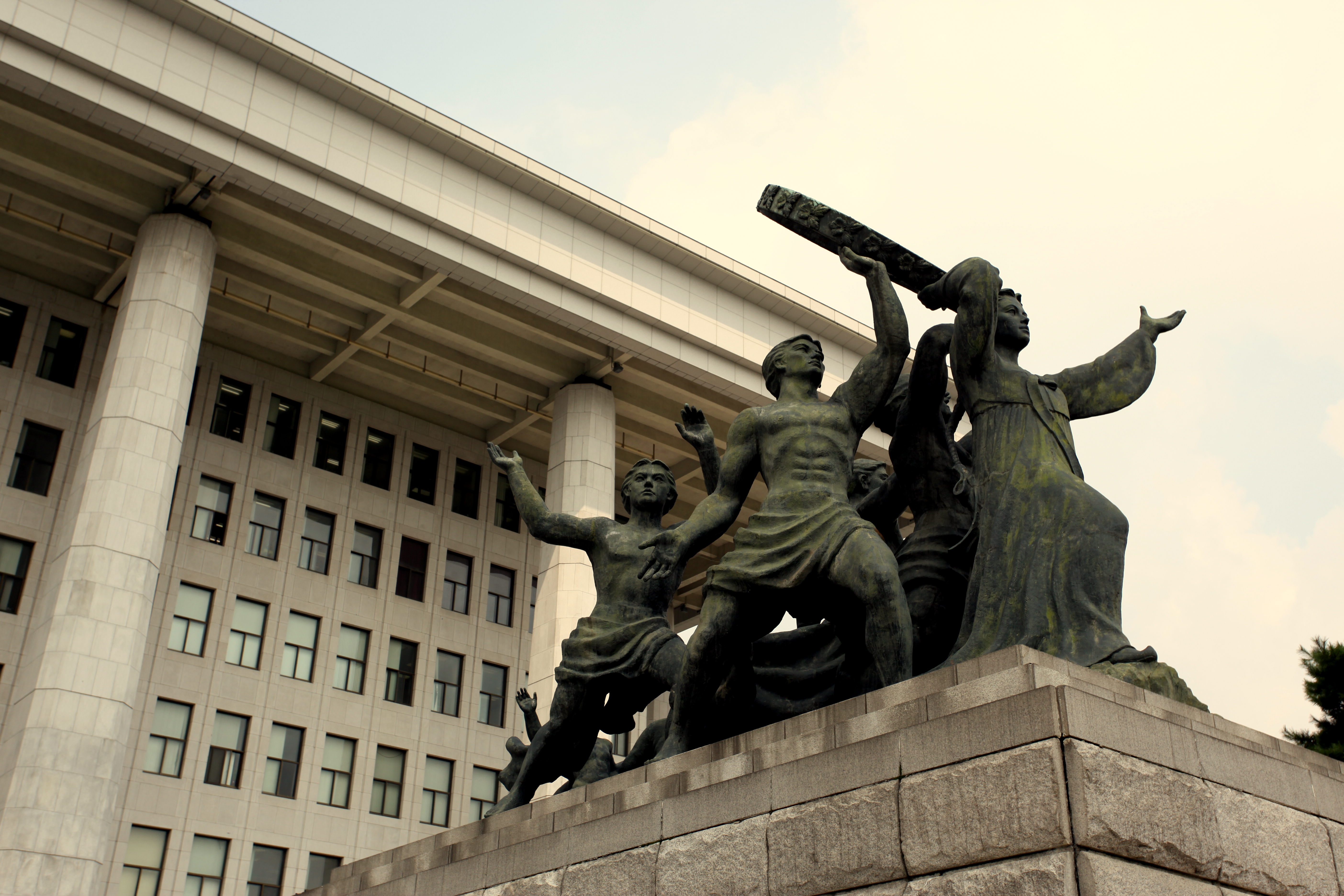On Friday, South Korea's National Assembly will meet with advocates for and against the country's ?three strikes? law that restricts the online activities of Internet users who violate copyright regulations. On March 24, 2013, Mr. Choi Jae-Cheon, a member of the Culture, Broadcasting, and Tourism Standing Committee of the Korean National Assembly, along with other twelve other sponsors, announced his proposal to repeal this provision of the law, which has been in force since 2009.

Korean National Assembly. Photo by Flickr user jeroen020. (CC BY-SA)
According to an official press release [ko], the South Korean government?introduced the three-strikes copyright control regime in July of 2009. Originally nicknamed the ?netizen-killing law,? the legislation stipulates that if an Internet user violates copyright law online, he or she will receive up to three warnings from the Ministry of Culture, Sports, and Tourism (hereafter ?MCST?), which is responsible for media content policy in South Korea. If the user's behavior does not change after three warnings have been issued, authorities can disable the person's web service account or shut down the bulletin board he or she used by administrative order.
This legal procedure is different from the three-strikes copyright regulation in France known as the HADOPI law. (France and New Zealand have adopted three-strikes copyright regulations; the United States has a somewhat similar six-strikes guideline.) In France, a person's Internet access cannot be blocked until his or her case has been reviewed and approved by a judge. But in South Korea, the executive branch is the sole enforcer of the regulation, making the process less transparent and more vulnerable to arbitrary decision-making.
Since the law was enacted, the Korean government has sent 468,446 takedown notices to users and shut down 408 website accounts. The law has affected far more users than it was originally intended to ? it was passed with the goal of targeting users engaging in massive amounts of illegal downloading, estimated at about 1,000 users. But in fact, according to Mr. Choi's investigation based on his team's collected data from MCST, among 380 users whose accounts have been shut down, 174 (45.8%) of them inflicted damages of less than US$.90. Mr. Choi argues that their punishment, which constrains their right of access to information, is much harsher than the cost they incurred. Therefore, the law not only violates legal due process ? it is also inefficient from an economic perspective, and it imposes a punishment that is?disproportionate to the crime.
A coalition of Korean Internet companies, experts, and civic groups including Jinbo.net,?IP Left, and?newly formed digital rights group Open Net [ko] have all voiced their support for repealing the law. In a post [ko] entitled ?Why We Can't Just Watch the Corruption of Copyright Law,? Open Net questioned the alleged economic motivations of the policy:
????? ?? 3?? ?? ?? ??? ??? ?? ?????? ?? ??? ?????? ??? ?? ?????? ??????. ????? ??? ?????? ??? ??? ??? ????? ?? ??? ??? ?? 47? ?? ???. 2009? ?? ? ?? ???? ?? ???? 3??? ??? ????? ?????? ????. ??? ?????? ?? ???? ? ??? ???? ????? ??? ??? ?? ????. ?? ???? ???? ?? 9??? ????? ????? ?????. (?) ?????? ??? ?? ??? ?? ??? ? ? ?????
Three-strikes law has been in force for the past three years. But it is already apparent that the government targeted not the heavy illegal down-loaders, but lay users. About 470,000 website accounts were warned by the government under the three-strikes law. In 2009, the government analyzed that number as only 1,000. Are we to believe that it has exponentially increased in the past couple of years? No way. Among users whose accounts have been shut down, there were none who traded copyrighted materials for commercial benefits. Some users were punished even though the amount of their indemnity was marginal, at US$0.9.
[...]
How then we can call the three-strikes law a regulation targeted at heavy down-loaders?
This and other Internet-related policies have brought together professors and activists who are forming new non-profit organizations focused on Internet rights. This emerging public coalition shows a promising sign of a new?counter-force against state-guided Internet and communication policy making processes in South Korea.
artie lange nascar daytona 2012 kasey kahne angelina jolie right leg saving face academy award winners best picture
No comments:
Post a Comment
Note: Only a member of this blog may post a comment.